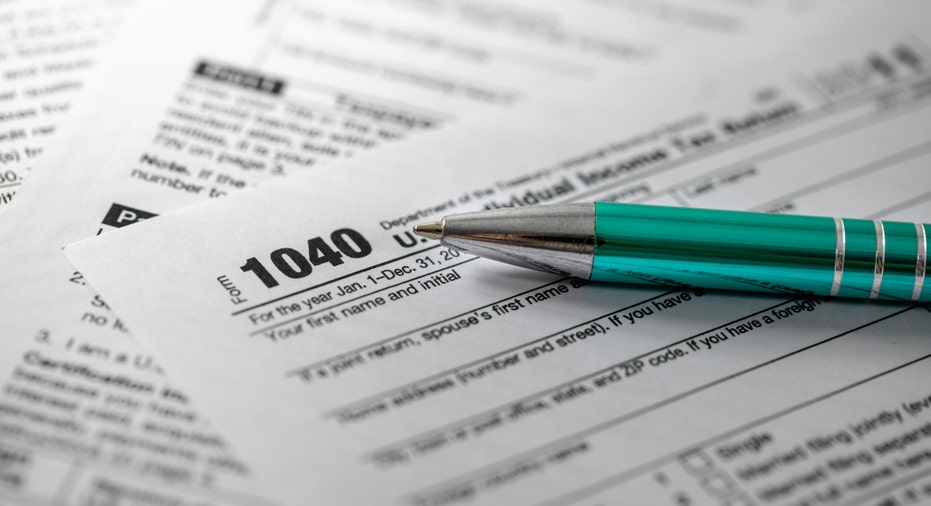5 reasons to file your taxes early

Your income tax return isn’t due until April. But it pays to be an early bird. (iStock)
Your income tax return is due to Uncle Sam by April 15, but there are a number of benefits for filing your taxes early.
In the first full week of tax season (ending January 31, 2020), the IRS received 15,777,000 individual income tax returns, the agency reported.
Not in a rush? Here are five reasons why you should file your 2020 tax return as soon as possible.
A faster refund (if you’re owed one)
Want to claim your refund quickly? The IRS issues most refunds in less than 21 days, but filing in late March or April can result in longer wait times, so it’s worth getting in line early. You can track the status of your tax return, from receipt to completion, using the IRS’ Where's My Refund? tool, which is also available on the IRS2Go mobile app.
HOW FICO'S NEW CREDIT SCORE CHANGES WILL AFFECT YOU
Moreover, the sooner you get your refund, the sooner you can invest the money and start earning interest—or “you could pay down credit card debt, student loans, or save it for a rainy day,” said Lisa Greene-Lewis, CPA and tax expert at TurboTax.
Lower risk of becoming a victim of tax fraud
Twelve percent of identity theft complaints are the result of tax fraud, according to the Insurance Information Institute. Tax-related identity theft occurs when someone uses your personal information, including your Social Security number, to file a tax return in your name and claim your refund.
Tax fraud issues can take months or longer to clear up. The upshot? Filing your taxes early can help protect your refund and identity from fraudsters, since it gives online crooks less time to step in and falsely file return in your name. “As soon as taxpayers file, it blocks that Social Security number from being used again,” explained Mark Steber, chief tax officer at Jackson Hewitt.
Less stress
The majority (52 percent) of taxpayers think that the filing process is stressful, a recent TaxSlayer.com survey found. Scrambling at the eleventh hour to get your taxes done by the deadline can make things worse. Filing your return early will take some stress off—and give you more time to address any issues, such as catching mistakes on your W-2 or 1099 forms.
Another factor to consider? If you procrastinate and put yourself under pressure, you could miss tax deductions or credits that you’re entitled to, Greene-Lewis said: “People who wait until the last minute to do their taxes tend to rush and may leave out information.”
Tax preparers are less busy
More than 83 million taxpayers paid someone to prepare their federal tax return in 2017, according to the IRS says. Professional tax preparers, such as tax attorneys, certified public accountants (CPAs), and IRS enrolled agents, get busier as they get closer to the tax deadline. So, if you’re using a professional to prepare your tax return, tapping the person in February or March can get you better customer service, since fewer clients will be vying for their attention.
Don’t have a tax preparer? Using an online tax filing service may be a good move. After all, “there’s no reason to stand in line at a tax store when you can do your taxes from the comfort of your own home and even on the go,” Greene-Lewis pointed out.
More time to devise a payment plan (if you owe money)
Most Americans get a tax refund, because most workers pay their income taxes every two weeks through automatic federal and state withholding from their paycheck. However, you could get hit with a tax bill if you haven’t updated your Form W-4, a document used to determine your income tax withholding.
DOCUMENTS REQUIRED TO APPLY FOR A PERSONAL LOAN
If you owe money, you’ll want to pay it off before the tax deadline, since the IRS can tack on penalty fees and interest to a late balance until it’s paid in full. Short on cash? It may make sense to take out a personal loan to pay your tax bill. Interest rates for personal loans typically range from about 5 percent to 36 percent, according to ValuePenguin. Consult a mortgage lender or financial advisor to see if a personal loan makes sense for you.
Have student loans? Don’t miss this tax deduction
If you have student loans, you may be eligible to subtract up to $2,500 in the interest you paid on your loans from your taxable income, depending on how much money you made in 2019. Also, claiming a student loan interest tax deduction could move you into a lower tax bracket.



















